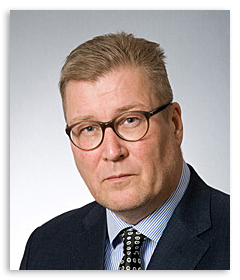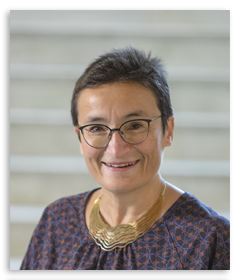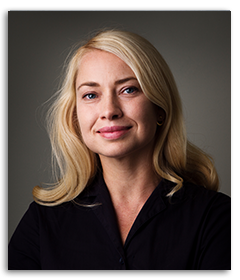Previous conferences and proceedings
SweCog 2023 in Göteborg
The 18th SweCog conference of the Swedish Cognitive Science Society will be held in Göteborg. The conference is free for all members and will take place between October 5th and October 6th.
Invited Speakers

Prof. Pär-Anders Granhag, University of Gothenburg.
The detection of lies: Emotional vs. cognitive approaches
In addition to the keynotes, Swecog 2023 will host a panel consisting of Prof. Virginia Dignum, Prof. Jonas Ivarsson, and Prof. Olle Häggström, moderated by Assoc. Prof. Linus Holm.
Panel discussion on AI: What is left to the human mind when machines do the thinking?
Call for Participation
SweCog invites both oral and poster presentations, covering all areas of cognitive science. We welcome presentations of on-going work as well as recently finished studies. If you would like to present, please submit a presentation abstract or a short paper, following the specification stated below. Desired presentation form (oral or poster) can be indicated when submitting.
Abstract submission
Submitted abstracts should be up to 200 words as plain text along with the conference registration. All accepted abstracts are included in the SweCog conference proceedings, which are published online.
Short paper submission
Submitted short paper manuscripts should be written using the provided formatting template, covering 1 to 3 pages including images and references. Manuscripts are submitted in PDF format.
Submitted short papers will be reviewed by two external reviewers, focusing on providing constructive feedback to the author. Accepted contributions will be included in the SweCog conference proceedings. The review process is by default fully open, revealing both authors and reviewers names, including reviewer feedback with publication. Reviewers can however request to be anonymous. Authors of accepted contributions will also be asked to provide an author response along with the camera ready submission.
Presentation
Oral presentation
Participants accepted for oral presentation are asked to prepare a 15 minute presentation, preferably using PowerPoint or similar visual support. An additional 5 minutes is reserved for questions.
If the number of submitted oral presentations exceeds the number of slots, priority will be given to short papers, while considering scientific quality, topical spread, and speaker diversity.
Poster presentation
Participants accepted for poster presentation are asked to prepare a poster that you print and bring to the conference. Details on poster size will be provided closer to the conference.
Registration and submission
Registration for SweCog 2023 is free of charge. Both abstracts and short papers are submitted through this webpage, along with your registrations. Submissions may also be updated later by logging in to your SweCog member's page.
Conference Programme
October 5thth
| 12:30 — 13:00 | Registration |
| 13:00 — 13:50 |
Invited speaker: Karin Jensen |
| 13:50 — 15:15 | Oral presentations (session 1) |
| Amandus Krantz: Trust me when I speak: Using speech to mitigate effects of robotic errors on trust | |
| Katie Winkle: Navigating Risks and Opportunities Pertaining to Robot Identity Performance and Abuse | |
| Ilaria Torre: Can a gender ambiguous robot voice reduce gender stereotypes? | |
| 15:15 | Coffee Break |
| 15:45 — 16:50 | Oral presentations (session 2) |
| Melina Tsapos: Partisan users select partisan search queries: Further evidence for the “self-imposed filter bubble” hypothesis | |
| Alexander Berman: Counterfactual reasoning capabilities of GPT: Preliminary findings | |
| Andreas Chatzopoulos: Cognitive explanations and Large Language Models | |
| 16:50 — 18:00 | Poster session with elevator pitch All poster presenters are invited to do an elevator pitch of 2 minutes before the start of the poster session. Ismael Albutihe, Anton Smedberg et al., Philip Gustafsson, Erik Hallberg & Ludwig Lundstedt, Azadeh Karamali, Erik Lagerstedt, Kajsa Nalin & Erik Lagerstedt, Anders Persson, Samantha Stedtler, Nanna Strid et al., Franziska Babel et al., Victor Nyberg, William Hedley Thompson, and Shuren Yu. |
| 18:30 | Reception with light food. Staff area, Floor 3, Forskningsgången 6 |
October 6thth
| 09:00 — 09:50 |
Invited speaker: Pär-Anders Granhag |
| 09:50 | Coffee Break |
| 10:10 — 11:50 | Oral presentations (session 3) |
| Mattias Forsgren: “The report of my death was an exaggeration” – no evidence to rule out associative learning in non-stationary probability learning | |
| Linus Holm: Information source credibility predicts curiosity in trivia fact learning | |
| Maybí Morell Ruiz: Processing of estimation in adults using Two-choice-NLET | |
| Mohammad Hossein Heydari Beni: Category theory: From Semantic Information in the mind to Shannon Information in the brain | |
| Mattias Rost: Markov Games for Humans and Machines | |
| 11:50 | Lunch |
| 13:00 — 14:00 | Oral presentations (session 4) |
| Betul Tolgay and Oskar MacGregor: A Sorry State: Frontal Alpha Asymmetry Is a Spurious Measure of Emotion Lateralization in an Affect Elicitation Task | |
| Simon Skau: An attempt to replicate the Response Conflict/Competition Theory’s hypothesis of the Stroop effect with functional near infrared spectroscopy | |
| Dániel Pénzes: Interpreting mental rotation performance in self-described aphantasia through cognitive penetrability | |
| 14:00 — 15:00 | Invited speaker: Virginia Dignum |
| 15:00 — 15:40 |
Panel discussion on AI: What is left to the human mind when machines do the thinking? |
| 15:40 — 15:50 | Closing |
Venue
The conference takes place at Campus Lindholmen, University of Gothenburg, specifically Torg Grön, Floor 4, Department of Applied IT, Forskningsgången 6, 417 56 Göteborg.
Organization
Pierre Gander (Chair), Dept. of Applied IT, Division of Cognition & Communication, University of Gothenburg
Contact
Head organizer: Pierre Gander.
Questions on proceedings and submissions are sent to info@swecog.se.

